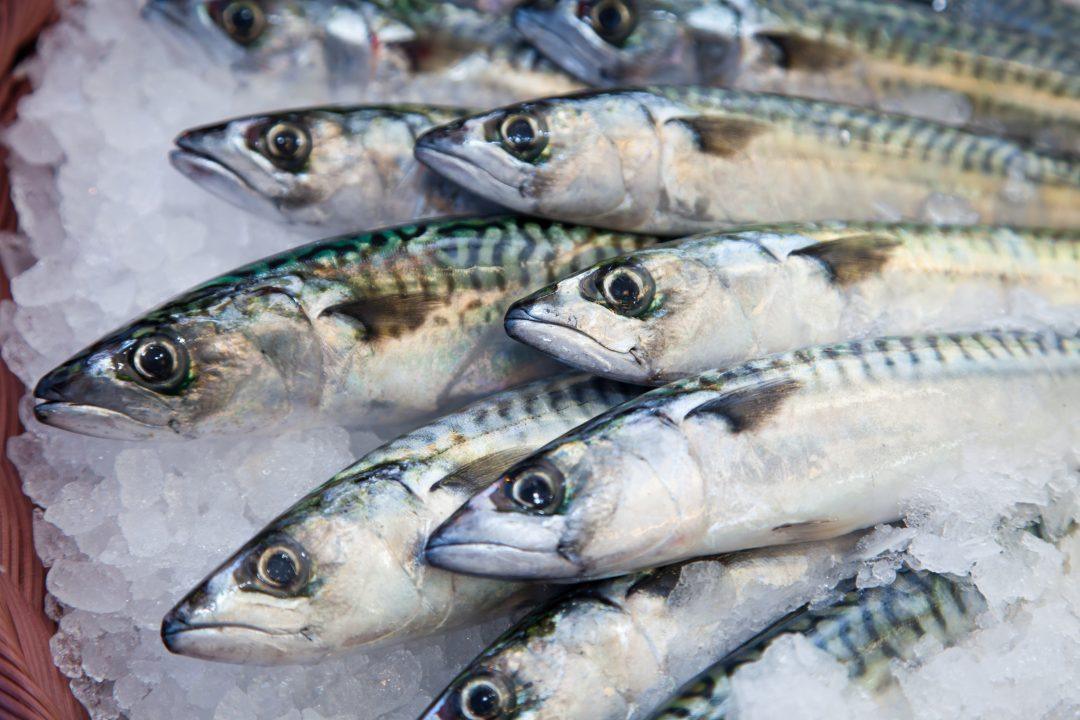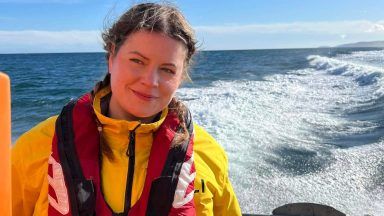Scotland is set to keep selling more and more of its mackerel to Japan thanks to a renewed trade agreement struck by industry leaders this week.
In the last four years, Scottish mackerel imports to Japan have risen sharply from 2% of the total market to 20%.
Seafood Scotland, the independent trade and marketing body for the nation’s seafood industry, is hoping to grow that trend by sending even more fish to Japan in the coming year.
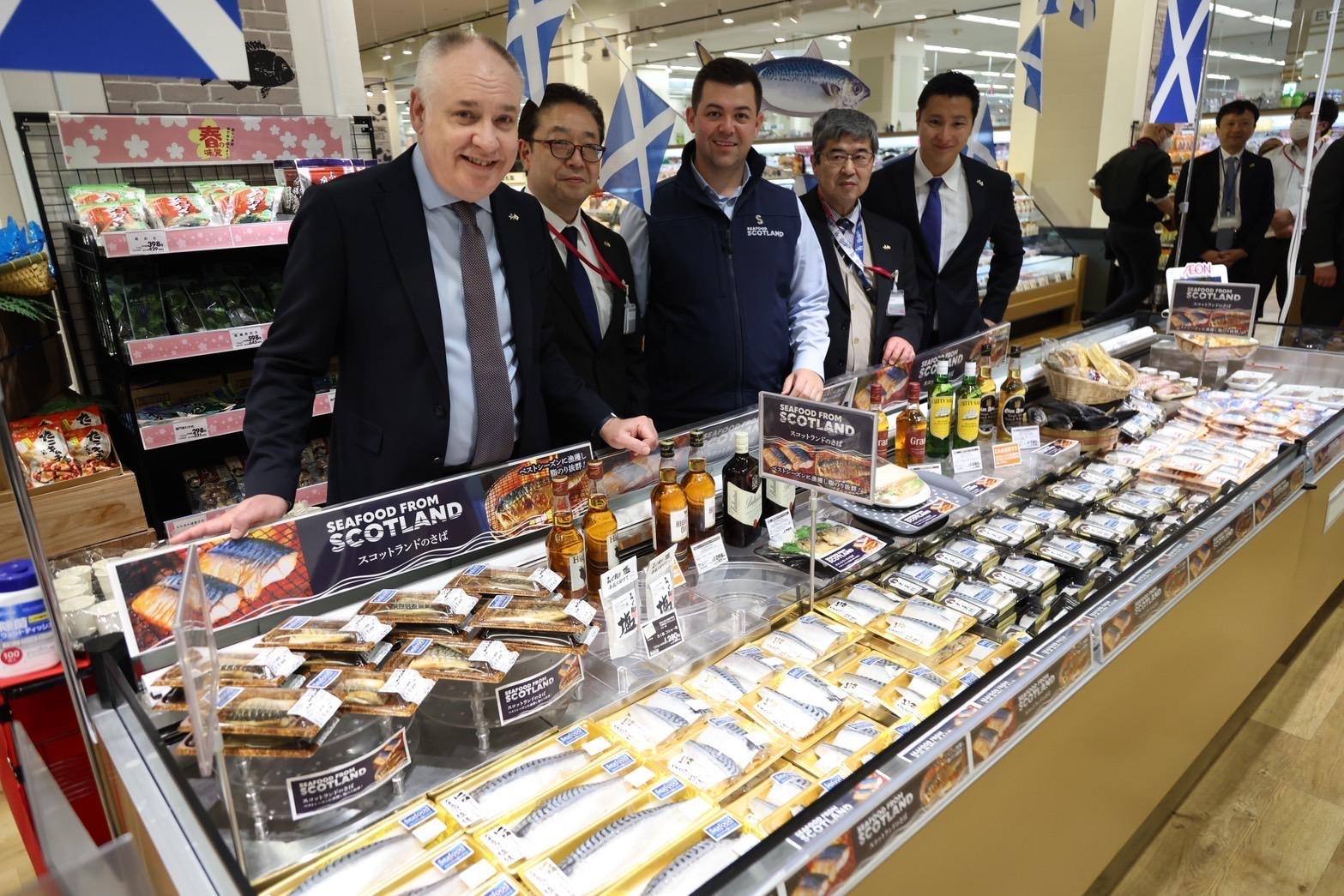 Suisan Keizai Newspaper/Seafood Scotland
Suisan Keizai Newspaper/Seafood ScotlandThe new Scotland-Japan mackerel deal launched on Monday is the fourth in four years in a row.
“This growth proves the excellence of Scotland’s seafood specialists, who are committed to providing the highest quality product. I both share and admire their commitment to sustainable fisheries management, too, ensuring these opportunities can be realised now and in years to come,” business minister Richard Lochhead said.
“And it shows what is possible when you tell the world that we are open for business.”
Lochhead and other industry leaders are currently on a trade mission to Osaka and Tokyo where they’ve been trying to flog more mackerel and more Scottish seafood to Japanese markets.
It’s the fourth consecutive year that the team has worked with Aeon to promote Scottish mackerel in its stores.
“We are delighted to be funding this mackerel promotion with Aeon as it will help build upon the significant increase in mackerel sales to Japan we have experienced in recent years,” Robert Duthie, chair of the Scottish Pelagic Processors’ Association, said.
Speaking to STV News, Adam Wing, Seafood Scotland’s head of trade marketing for the UK, Asia and the Middle East, said deals like this “bring certainty” to the market and allow Scottish companies to invest in staff and industry to meet the demand.
“It comes to economic development for the local community,” he said.
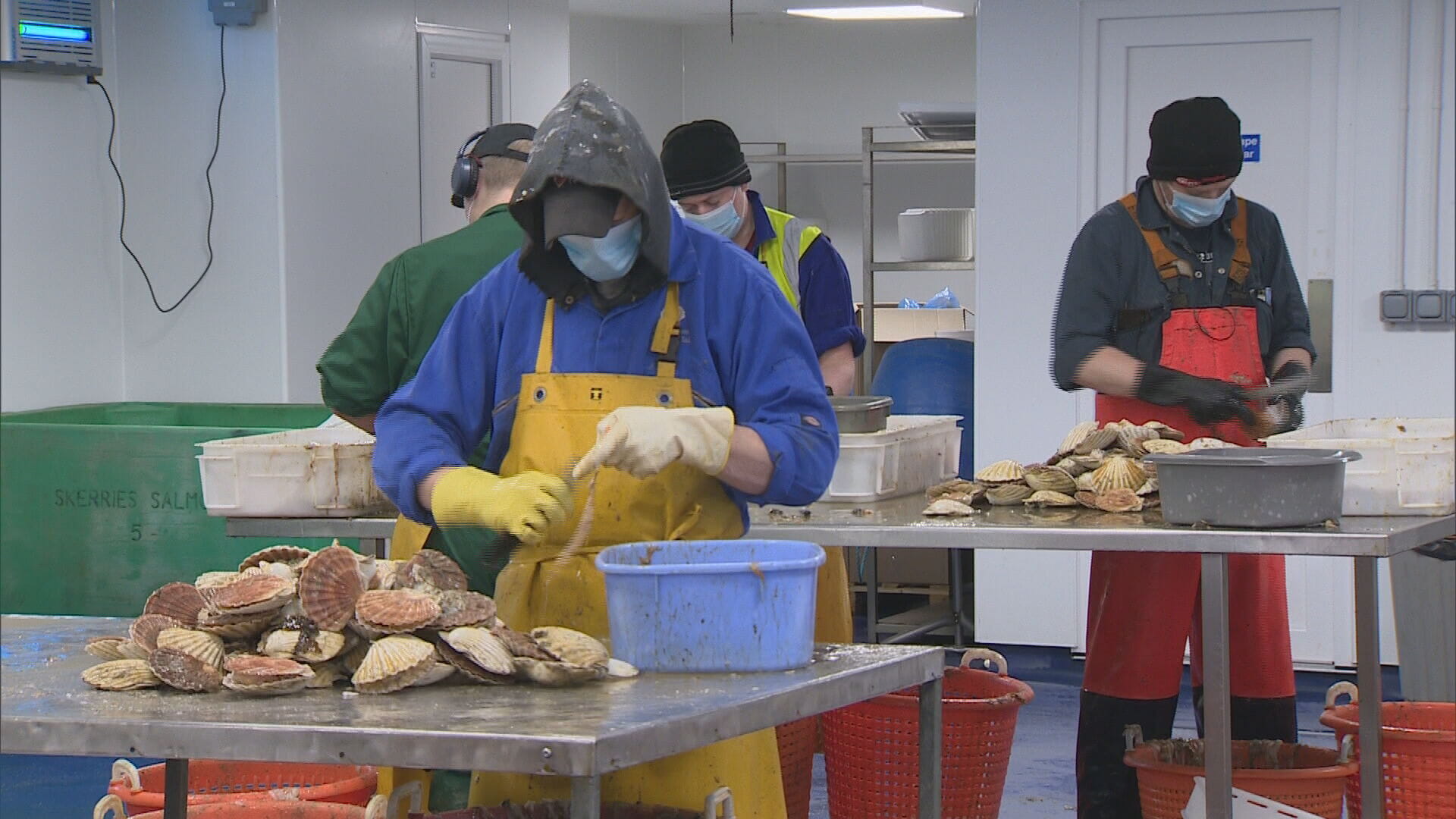 STV News
STV NewsHowever, the latest continued promotion of Scottish mackerel in Japan has come amid warnings from the Marine Conservation Society that the Northeast Atlantic stock is under threat.
“Mackerel is under immense pressure from fishing activities across multiple nations, and the stock will soon be no longer able to sustain itself,” Alice Moore, Good Fish Guide manager said.
The marine conservation charity said management and enforcement of stocks are “insufficient” amongst countries like Norway, Iceland, the Faroe Islands, and the UK.
The catch limits set by all parties have consistently exceeded scientifically recommended levels by between 5% and 80% since 2009.
“In recent years (2020 – 2024) [catch limits] were, on average, 39% higher than scientific advice,” MCS said.
“Although actual catches have typically fallen below these TACs, they still exceeded recommended levels by an average of 23% (188,410 tonnes).
Mr Wing wasn’t asked about the MCS report directly, but he said Scottish seafood would like to expand its range beyond mackerel.
“We’d like to bring in salmon and other species into the range,” he said.
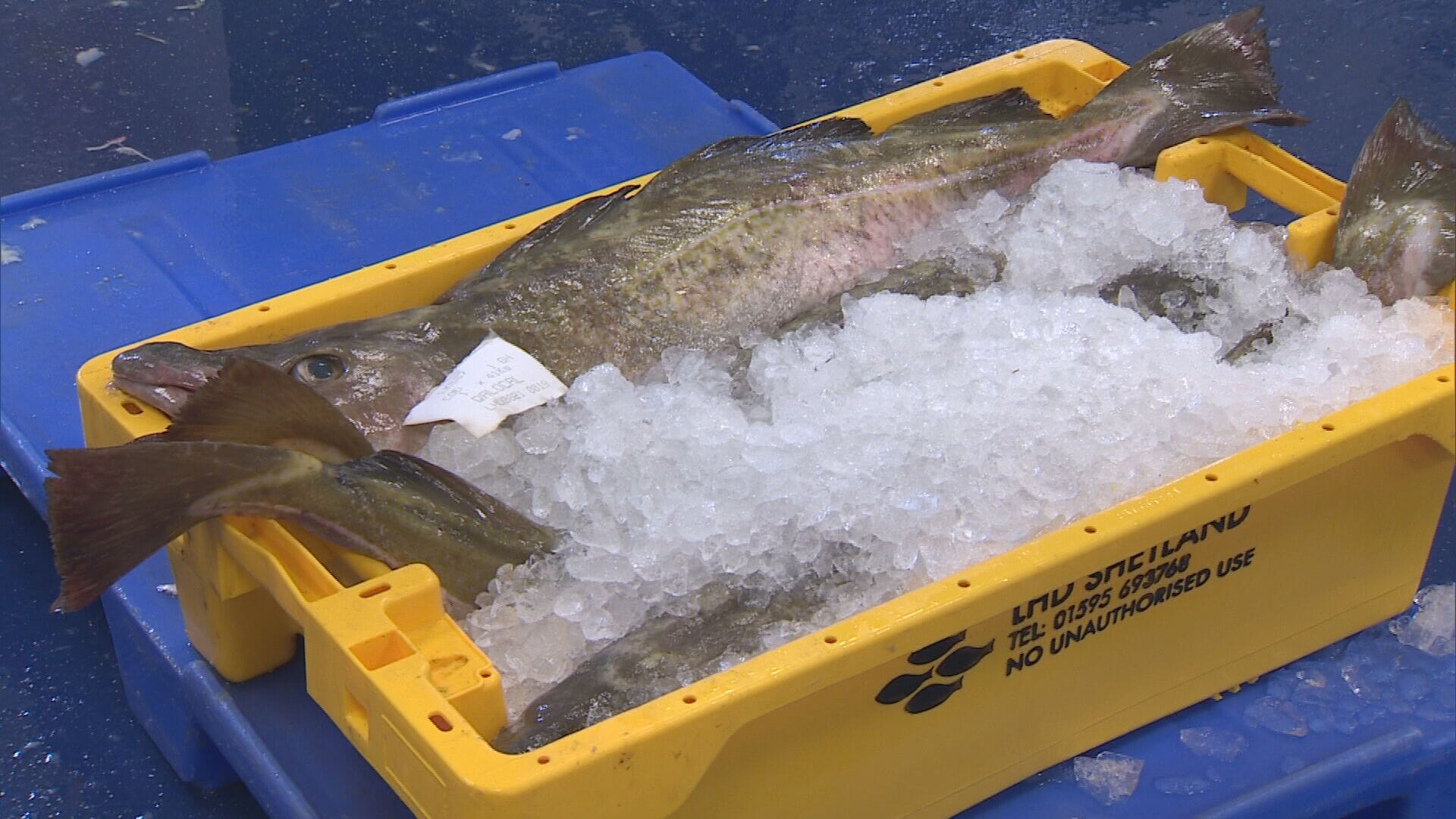 STV News
STV NewsRobert Duthie, chairman of the Scottish Pelagic Processors’ Association acknowledged that fishing pressures on mackerel is “higher than the scientifically recommended level”, it’s down to other states setting “their own unilateral quotas outside international agreement”.
“The UK has kept its original, historic share, and our pelagic sector is pressing hard for a sensible and pragmatic resolution to this issue,” Mr Duthie said.
“It is important to recognise that the north-east Atlantic mackerel is currently above the maximum sustainable yield reference point for sustainable fishing, which means the stock size is relatively healthy.”
He added: “The Scottish pelagic sector is committed to sustainable fishing for north-east Atlantic mackerel and in recent years has spearheaded a range of initiatives to enhance our knowledge of the stock, including an innovative sampling-at-sea programme and participating in a range of scientific surveys and other projects.”
Follow STV News on WhatsApp
Scan the QR code on your mobile device for all the latest news from around the country


